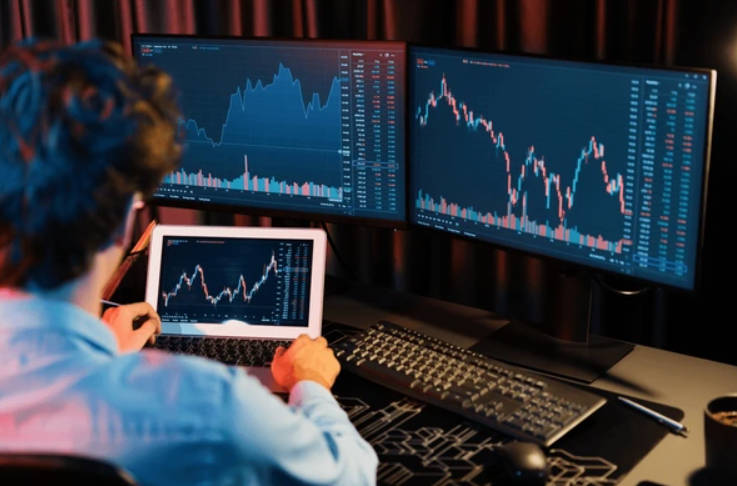Important Information
This website is managed by Ultima Markets’ international entities, and it’s important to emphasise that they are not subject to regulation by the FCA in the UK. Therefore, you must understand that you will not have the FCA’s protection when investing through this website – for example:
- You will not be guaranteed Negative Balance Protection
- You will not be protected by FCA’s leverage restrictions
- You will not have the right to settle disputes via the Financial Ombudsman Service (FOS)
- You will not be protected by Financial Services Compensation Scheme (FSCS)
- Any monies deposited will not be afforded the protection required under the FCA Client Assets Sourcebook. The level of protection for your funds will be determined by the regulations of the relevant local regulator.
Note: Ultima Markets is currently developing a dedicated website for UK clients and expects to onboard UK clients under FCA regulations in 2026.
If you would like to proceed and visit this website, you acknowledge and confirm the following:
- 1.The website is owned by Ultima Markets’ international entities and not by Ultima Markets UK Ltd, which is regulated by the FCA.
- 2.Ultima Markets Limited, or any of the Ultima Markets international entities, are neither based in the UK nor licensed by the FCA.
- 3.You are accessing the website at your own initiative and have not been solicited by Ultima Markets Limited in any way.
- 4.Investing through this website does not grant you the protections provided by the FCA.
- 5.Should you choose to invest through this website or with any of the international Ultima Markets entities, you will be subject to the rules and regulations of the relevant international regulatory authorities, not the FCA.
Ultima Markets wants to make it clear that we are duly licensed and authorised to offer the services and financial derivative products listed on our website. Individuals accessing this website and registering a trading account do so entirely of their own volition and without prior solicitation.
By confirming your decision to proceed with entering the website, you hereby affirm that this decision was solely initiated by you, and no solicitation has been made by any Ultima Markets entity.
I confirm my intention to proceed and enter this websiteTrading Futures vs Options: Key Differences

When it comes to trading in the financial markets, futures and options are two of the most widely-used derivatives. Both instruments offer traders opportunities to speculate on the price movement of underlying assets like commodities, stocks, or currencies. However, despite their similarities, the differences between trading futures vs options are substantial. Understanding these differences is crucial for anyone considering entering these markets, as they come with varying levels of obligation, risk, and reward.
What Are Futures?

Futures contracts are agreements between a buyer and a seller to buy or sell an asset at a predetermined price at a specified time in the future. These contracts are commonly used for commodities, financial instruments, and more. Futures can be an effective tool for hedging, as they allow traders to lock in prices and protect against unfavorable market movements.
Key Features of Futures:
- Obligation to Fulfill Contract: Futures contracts come with the obligation to buy or sell the asset at the agreed-upon price when the contract expires. Both the buyer and seller must fulfill the contract or risk penalties.
- Leverage: Futures allow traders to control larger positions with relatively small margin deposits, but this leverage magnifies both profits and losses. A small movement in the market can lead to substantial gains or significant losses.
- Unlimited Risk: Since futures are binding, traders face unlimited risk. A market move in the wrong direction can lead to losses far beyond the initial margin deposit.
Futures are typically used to hedge against price changes or speculate on the direction of an asset’s price. For example, a company may purchase commodity futures to lock in a price before a potential rise in costs.
What Are Options?
Options are financial instruments that give the buyer the right (but not the obligation) to buy or sell an asset at a specific price on or before a set expiration date. Unlike futures, where both parties must fulfill the contract, options allow the buyer to opt out, losing only the premium paid.
Key Features of Options:
- Right, Not Obligation: Options give traders the right to buy (call options) or sell (put options) the underlying asset. If the market does not move as anticipated, the buyer can choose not to exercise the option, losing only the premium paid.
- Premium Cost: The cost of an option is the premium, which the buyer pays upfront. This is the maximum potential loss for the buyer, making options a less risky choice for some traders.
- Limited Risk: For the buyer of an option, the risk is limited to the premium paid. However, the seller of an option faces unlimited risk, especially in the case of uncovered (naked) options.
Call options are typically bought if a trader expects the price of the underlying asset to rise, while put options are purchased if a decline is anticipated.
Key Differences Between Trading Futures vs Options
Understanding the differences between futures and options is essential for choosing the right instrument for your trading style. Here’s a breakdown of the key distinctions:
To better understand the differences between futures vs options, here’s a side-by-side comparison:
| Feature | Futures | Options |
| Obligation | Obligated to fulfill contract | Have the right, but not obligation to execute |
| Risk | Unlimited risk | Limited risk for buyers (premium paid) |
| Reward Potential | Unlimited reward | Unlimited reward for buyers, but capped for sellers |
| Leverage | High leverage | Leverage for buyers, margin for sellers |
| Expiration | Must fulfill contract at expiration | Can exercise any time before expiration |
| Premium | No premium, margin deposit required | Upfront premium paid, can be lost if expired out-of-the-money |
| Use in Hedging | Common for hedging against price moves | Used for speculation, hedging, and income generation |
| Trading Style | More direct, contractual involvement | More flexible, with strategic options |
| Market Movements | Large price movements can be profitable | Option pricing affected by volatility, time decay, and market movement |
How to Trade Futures vs Options
Both futures and options can be traded through Contract for Difference (CFD) accounts, which offer exposure to the markets without the need to handle the physical delivery of the underlying asset. Trading futures or options through CFDs allows you to speculate on price movements without the complexity of traditional futures trading.
When trading futures vs options, you can also take advantage of leveraged positions to amplify potential returns. The margin for buying options is the premium multiplied by the size of the contract, while selling options incurs the same margin as the underlying futures market.
Trading Futures vs Options: Key Benefits and Risks

Benefits and Risks of Futures Trading
Benefits of Futures Trading:
- No Capital Gains Tax or Stamp Duty: Trading futures through derivatives can provide tax benefits.
- 24-Hour Access: Futures markets are available for trading around the clock, providing flexibility.
- Leverage: Traders can control large positions with a small margin, enhancing profit potential.
- Hedge Against Volatility: Futures allow for effective hedging strategies in volatile markets.
Risks of Futures Trading:
- Unlimited Losses: If the market moves against your position, you may lose more than your initial deposit due to leverage.
- Market Volatility: Futures markets can experience high volatility, making them risky for inexperienced traders.
Benefits and Risks of Options Trading
Benefits of Options Trading:
- Limited Risk: The maximum loss is limited to the premium paid for the option.
- Leverage: Options allow traders to control a large position for a relatively small upfront cost.
- Flexibility: Options can be exercised at any time before expiration, providing flexibility for traders.
Risks of Options Trading:
- Unlimited Losses for Sellers: The seller of an option faces unlimited losses if the market moves significantly against their position.
- Premium Loss: Buyers can lose the entire premium if the option expires out-of-the-money.
Conclusion
In the world of trading futures vs options, both derivatives offer opportunities to speculate on market price movements, but they come with different risk and reward profiles. Futures require the fulfillment of the contract and involve unlimited risk, while options offer flexibility with limited risk for buyers. Understanding these instruments, along with their benefits and risks, is crucial for successful trading.
Whether you choose to trade futures or options, managing your risk is key. By trading through a CFD account, you can gain exposure to these markets with fewer obligations, making it easier to speculate on price movements while avoiding the complexities of traditional futures and options trading.
Always be mindful of the risks involved and ensure that your strategy aligns with your trading goals.
Disclaimer: This content is provided for informational purposes only and does not constitute, and should not be construed as, financial, investment, or other professional advice. No statement or opinion contained here in should be considered a recommendation by Ultima Markets or the author regarding any specific investment product, strategy, or transaction. Readers are advised not to rely solely on this material when making investment decisions and should seek independent advice where appropriate.












